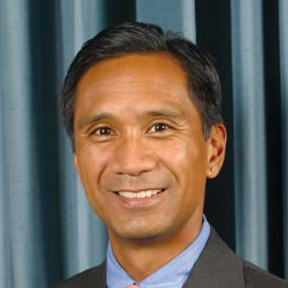Before exiting the stage as secretary of defense, Robert Gates took a parting shot at NATO. During his last visit to Europe, Gates delivered a scathing speech that included these criticisms:
- “too many allies have been unwilling to fundamentally change how they set priorities and allocate resources”
- “the very real possibility of collective military irrelevance”
- “there will be dwindling appetite and patience in the U.S. Congress—and in the American body politic writ large—to expend increasingly precious funds on behalf of nations that are apparently unwilling to devote the necessary resources or make the necessary changes to be serious and capable partners in their own defense”
- “future U.S. political leaders—those for whom the Cold War was not the formative experience that it was for me—may not consider the return on America’s investment in NATO worth the cost”
- “the real possibility for a dim, if not dismal future for the trans-Atlantic alliance”
Of course, Gates’ intention was to rebuke the European members of NATO into stepping up to the plate:
It is not too late for Europe to get its defense institutions and security relationships on track. But it will take leadership from political leaders and policymakers on this continent. It cannot be coaxed, demanded, or imposed from across the Atlantic.
Over the life of the trans-Atlantic alliance, there has been no shortage of squabbles and setbacks. But through it all, we managed to get the big things right over time. We came together to make the tough decisions in the face of dissension at home and threats abroad. And I take heart in the knowledge that we can do so again.
But the real issue is not how to perpetuate NATO, but whither NATO?
According to the NATO website:
The North Atlantic Treaty Organization (NATO) is an alliance of 28 countries from North America and Europe committed to fulfilling the goals of the North Atlantic Treaty signed on 4 April 1949. In accordance with the Treaty, the fundamental role of NATO is to safeguard the freedom and security of its member countries by political and military means.
At the heart of NATO is the idea of “collective defense,” the basis for Article 5, which states:
The Parties agree that an armed attack against one or more of them in Europe or North America shall be considered an attack against them all and consequently they agree that, if such an armed attack occurs, each of them, in exercise of the right of individual or collective self-defense recognized by Article 51 of the Charter of the United Nations, will assist the Party or Parties so attacked.
In 1949 and throughout the Cold War, the threat to NATO was the Soviet Union. But with the fall of the Berlin Wall and the demise of the Soviet Union in 1991, the military threat to and raison d’être for NATO essentially ceased to exist. Yet, since then, NATO has expanded to include 12 new member countries—with more on the verge of becoming members (and others being considered as members). You would think it would be the other way around. And why are there still some 80,000 U.S. troops stationed in Europe?
If the Europeans have security concerns and a need for collective defense, they are more than capable of paying for it themselves. The economy of the European Union (EU) is $15 trillion, compared to $13 trillion for the United States. Yet the U.S. spends almost $700 billion (about 5 percent of its gross domestic product) on defense while the EU countries spend less than $300 billion combined (less than 2 percent of their GDP). Given a deficit with no end in sight and an economy still uncertain about recovery, the last thing the U.S. can afford is to continue subsidizing the security of Europe against a threat that doesn’t exist.
The truth is that Gates should not have been telling European members of NATO to get their act together to preserve the alliance; he should have been asking Americans why we’re still part of NATO. Indeed, it was none other than Dwight Eisenhower who said, in 1951, “If in 10 years, all American troops stationed in Europe for national defense purposes have not been returned to the United States, then this whole project [NATO] will have failed.”







